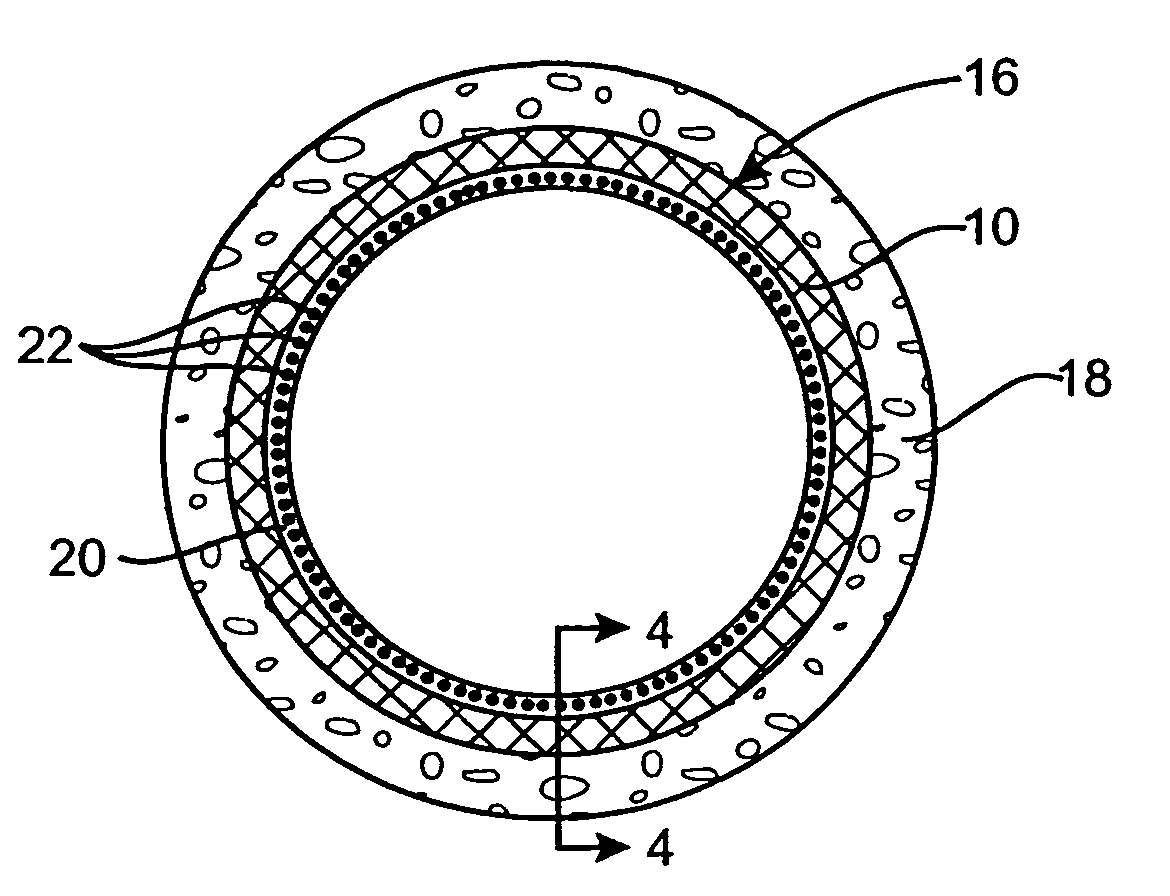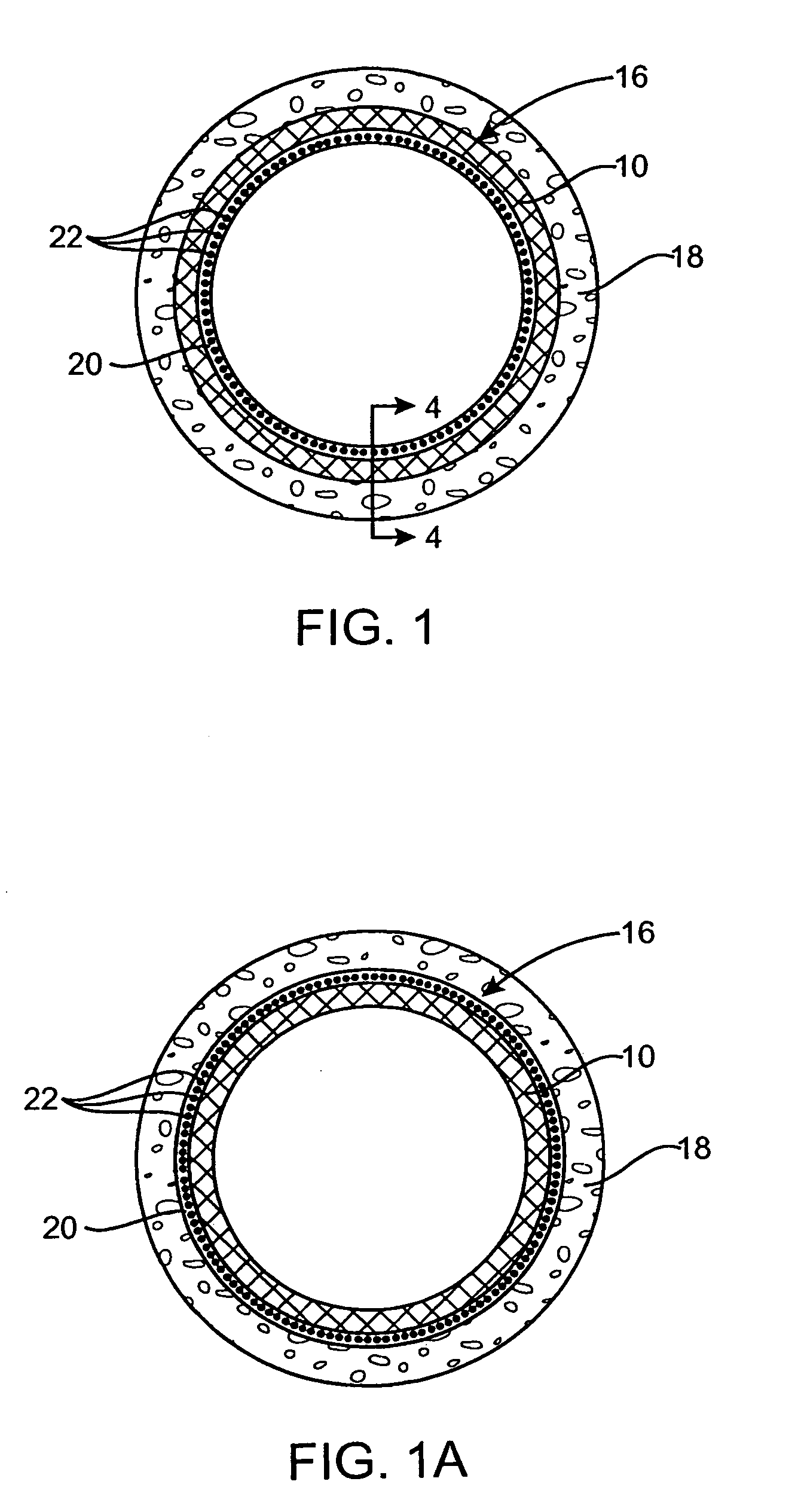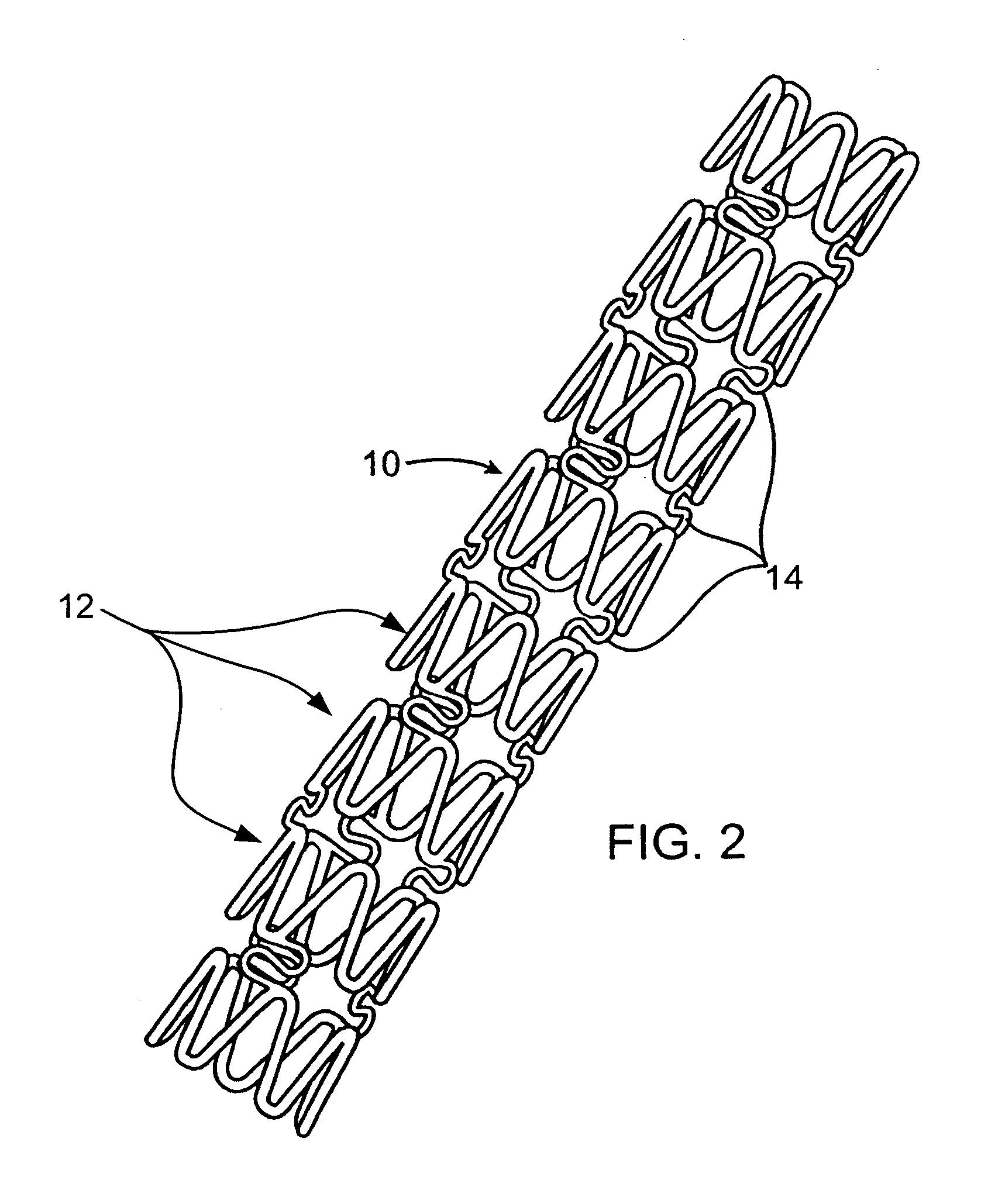Intravascular delivery of methylprednisolone
a technology of methylprednisolone and intravascular delivery, which is applied in the field ofluminal prostheses, can solve the problems of hyperplasia, dna synthesis inhibition, etc., and achieve the effects of inhibiting hyperplasia, reducing the risk of dna synthesis, and increasing efficiency and/or efficacy
- Summary
- Abstract
- Description
- Claims
- Application Information
AI Technical Summary
Benefits of technology
Problems solved by technology
Method used
Image
Examples
example 1
Methylprednisolone Loaded on Vascular Stent
[0075]A stainless steel Duraflex™ stent, having dimensions of 3.0 mm×14 mm is sprayed with a solution of 25 mg / ml methylprednisolone (sold commercially by SIGMA CHEMICALS) in a 100% ethanol or methanol solvent. The stent is dried and the ethanol is evaporated leaving the methylprednisolone on a stent surface. A 75:25 PLLA / PCL copolymer (sold commercially by POLYSCIENCES) is prepared in 1,4 Dioxane (sold commercially by ALDRICH CHEMICALS). The methylprednisolone loaded stent is loaded on a mandrel rotating at 200 rpm and a spray gun (sold commercially by BINKS MANUFACTURING) dispenses the copolymer solution in a fine spray on to the methylprednisolone loaded stent as it rotates for a 10–30 second period. The stent is then placed in a oven at 25–35° C. up to 24 hours to complete evaporation of the solvent.
example 2
Increased Loading of Methylprednisolone on Vascular Stent
[0076]Stainless steel Duraflex stent (3.0×13 mm) is laser cut from a SS tube. The surface area for loading the drug is increased by increasing the surface roughness of the stent. The surface area and the volume of the stent can be further increased by creating 10 nm wide and 5 nm deep grooves along the links of the stent strut. The grooves are created in areas which experience low stress during expansion so that the stent radial strength is not compromised. The drug can then be loaded on the stent and in the groove by dipping or spraying the stent in methylprednisolone solution prepared in low surface tension solvent such as isopropyl alcohol, ethanol, or methanol. The stent is then dried and the drug resides on the stent surface and in the grooves, which serve as a drug reservoir. Paralene is then deposited on the stent to serve as a rate limiting barrier. The drug elutes from the stent over a period of time in the range from...
example 3
[0077]The methylprednisolone substance is dissolved in methanol, then sprayed on the stent, and left to dry evaporating the solvent with the methylprednisolone remaining on the stent surface. A matrix or barrier (silicone, polytetrafluorethylene, parylast, parylene) is sprayed or deposited on the stent encapsulating the methylprednisolone. The amount of methylprednisolone varies from 100 micrograms to 2 milligrams, with release rates from I day to 45 days.
PUM
 Login to View More
Login to View More Abstract
Description
Claims
Application Information
 Login to View More
Login to View More - R&D
- Intellectual Property
- Life Sciences
- Materials
- Tech Scout
- Unparalleled Data Quality
- Higher Quality Content
- 60% Fewer Hallucinations
Browse by: Latest US Patents, China's latest patents, Technical Efficacy Thesaurus, Application Domain, Technology Topic, Popular Technical Reports.
© 2025 PatSnap. All rights reserved.Legal|Privacy policy|Modern Slavery Act Transparency Statement|Sitemap|About US| Contact US: help@patsnap.com



